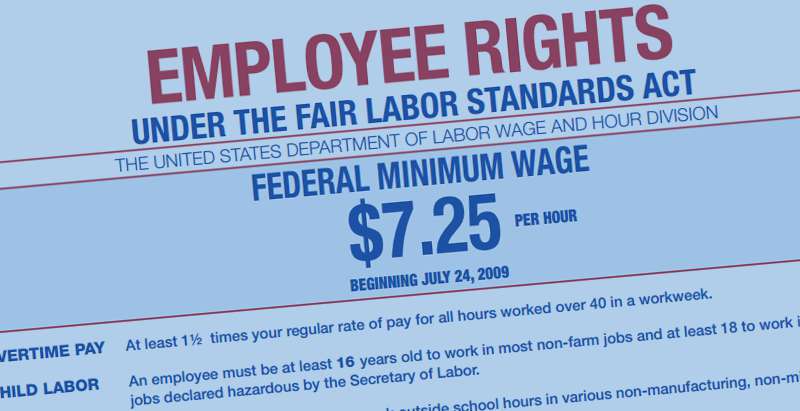Instead of raising the minimum wage, as President Obama has proposed, we should abolish it entirely. The minimum wage does more harm than good, particularly in an already dismal U.S. employment market, especially for the young, inexperienced, uneducated and low-skilled job-seekers.
Since the federal minimum wage’s adoption in 1938, the minimum wage has occupied part of the national agenda, re-emerging each time another politician advocates again raising it — as Mr. Obama did in his most recent State of the Union address.
In the era of the “War on Women” rhetoric, it’s worth noting that the minimum-wage law was originally premised on protecting women. In an all-too-familiar pattern of self-defeating meddling, it has failed to achieve its purposes and actually makes things worse for those the law claims to help.
The year before Congress adopted a federal minimum wage, the Supreme Court upheld a Washington state law setting a minimum wage for women, citing “the health of women and their protection from unscrupulous and overreaching employers.” After all, the court reasoned, women’s “physical well-being” and “maternal functions” are needed “to preserve the strength and vigor of the race.”
Yet reams of research over many decades have shown that these laws make it more difficult for entry-level workers to find their first job and gain those critical foundational skills. Simply put, low-skilled job-seekers cannot move up the ladder if they cannot get on the ladder in the first place. The true minimum wage becomes zero when a job-seeker cannot find a job because her lack of skill, experience and education means that it doesn’t make economic sense for an employer to hire her.
Advocates of higher minimum wages talk in emotional terms about the need for workers to earn enough to support themselves. Yet there is nothing compassionate about ignoring the real consequences of bad economic policies. Not even our multi-trillion-dollar federal government can repeal the law of supply and demand. Government policies that hold prices down at below-market levels result in supply shortages. For example, rent controls cause apartments to be unavailable. Price controls on gasoline result in long lines at the gas pump.
As economist Robert Murphy explains, “when the price of something goes up, consumers want to buy less of it, while producers want to sell more of it.” The market-clearing price occurs where the quantity supplied matches the quantity demanded. Shortages — say, of gasoline and apartments — result when the actual price is below the market-clearing price, and consumers try to buy more product than producers want to sell.
On the flip side, laws setting prices at above-market levels result in excess supply. As Mr. Murphy says, “if the actual price for some reason is initially too high, then producers will be trying to sell more units than consumers want to buy, so there will be a glut.” When there is too much labor on the market, the result is increased unemployment. “Keep in mind that some unskilled workers simply do not produce $8 worth of extra output for every hour they are on the job,” says Mr. Murphy. “If someone’s labor only produces, say, $7 of output per hour, then an $8 minimum wage would force an employer to lose $1 for every hour this person works. If the employer wants to maximize his profits, it would be smarter not to hire this person at all.”
Instead, employers must do what it takes — automation, outsourcing, belt-tightening, expecting more from employees already on board — to hire fewer workers and reduce head count.
Ralph Nader, arguing in favor of minimum-wage laws, claims that these laws help reduce poverty and reduce the number of people on welfare. In fact, the laws do just the opposite. Economists have shown this time and again. A study by economist Peter Brandon found that increases in states’ minimum wage resulted in decreased levels of work by women on welfare and increased time on welfare. A separate study by economist Keith Leffler found that increases in the minimum wage led to increases in the welfare rolls. Other studies, supported by dozens of reputable economists, have shown that the minimum wage does little to reduce poverty and that teens bear the brunt of minimum-wage legislation.
Let’s abolish the minimum wage and allow entry-level job seekers to find work. From that, they can gain experience, skills and the satisfaction that they are productive members of society. The ability to transform our lives is an essential part of the American experience. No one — despite age, inexperience or lack of skills — should be denied that first step on the road to independence.
Minimum-wage laws are a roadblock they don’t need.
First published in The Washington Times in May 2013








